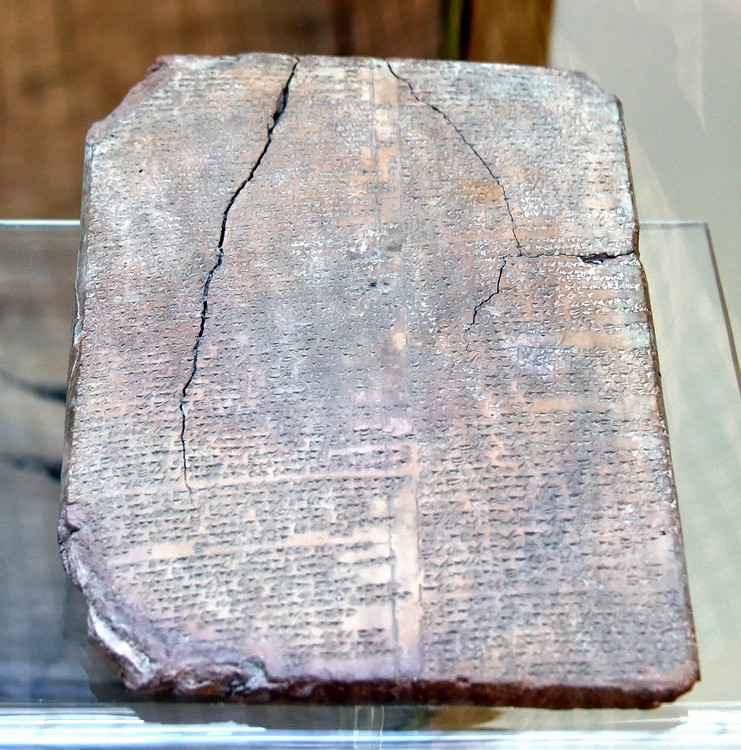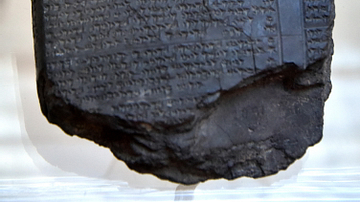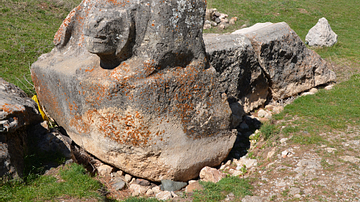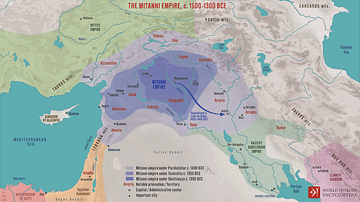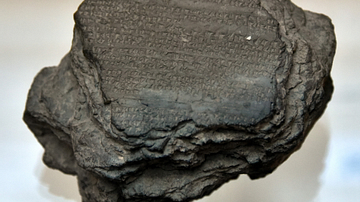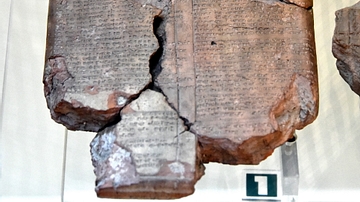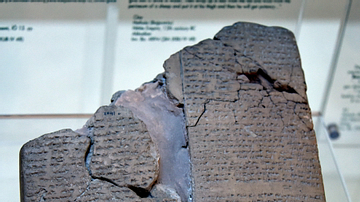Illustration
Lines 31-42 of this clay tablet describes the methods used by Kikkuli of the Mittani for training horses:
"...On eight successive nights, they are walked 5 kaskal-BU (5 x 10 Km). For eight nights, they are groomed and run for 7 iku (7 x 3600 m2). On the fifth night, they washed are in hot water without being immersed. They are fed each time. On the eighth day, they are taken out of harness and given two handfuls of barely. In the evening, they are harnessed to a chariot and walked for 1 kaskal-BU and run for 7 iku. They are then immediately removed from harness and allowed to rest. The horses graze for the whole night. The following day, they are again harnessed to the chariot and walked for 2 kaskal-BU, after which they are immediately unharnessed and allowed to rest. However, they are given no food or water. Exactly at noon, they are given a handful of fodder."
First half of the 14th century BCE, from Hattusa (Bogazkoy), in modern-day Turkey. (Museum of Archaeology, Istanbul, Turkey).
About the Author
Cite This Work
APA Style
Amin, O. S. M. (2018, September 10). Training Horses Tablet from Hattusa. World History Encyclopedia. Retrieved from https://www.worldhistory.org/image/9175/training-horses-tablet-from-hattusa/
Chicago Style
Amin, Osama Shukir Muhammed. "Training Horses Tablet from Hattusa." World History Encyclopedia. Last modified September 10, 2018. https://www.worldhistory.org/image/9175/training-horses-tablet-from-hattusa/.
MLA Style
Amin, Osama Shukir Muhammed. "Training Horses Tablet from Hattusa." World History Encyclopedia. World History Encyclopedia, 10 Sep 2018, https://www.worldhistory.org/image/9175/training-horses-tablet-from-hattusa/. Web. 17 Apr 2025.

